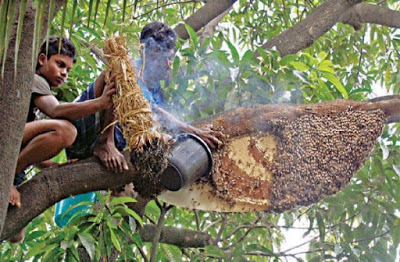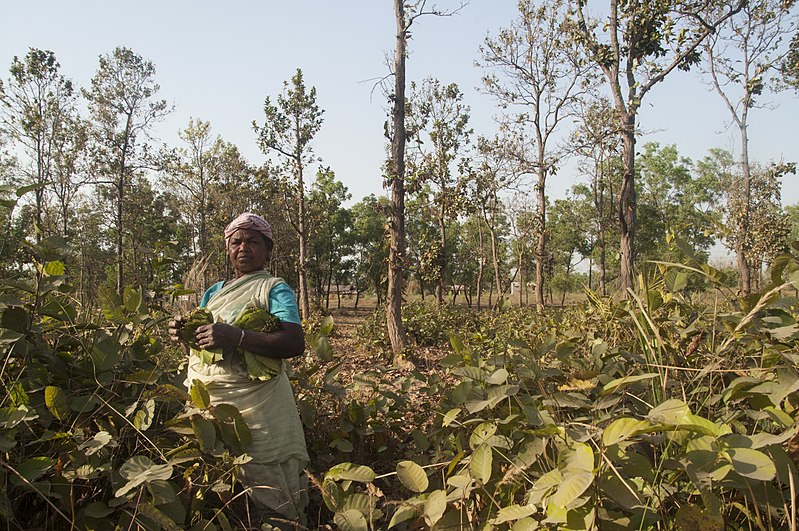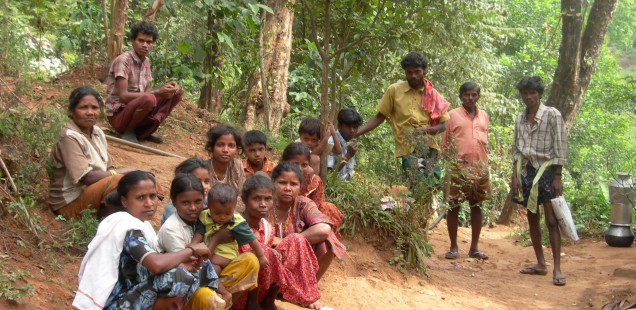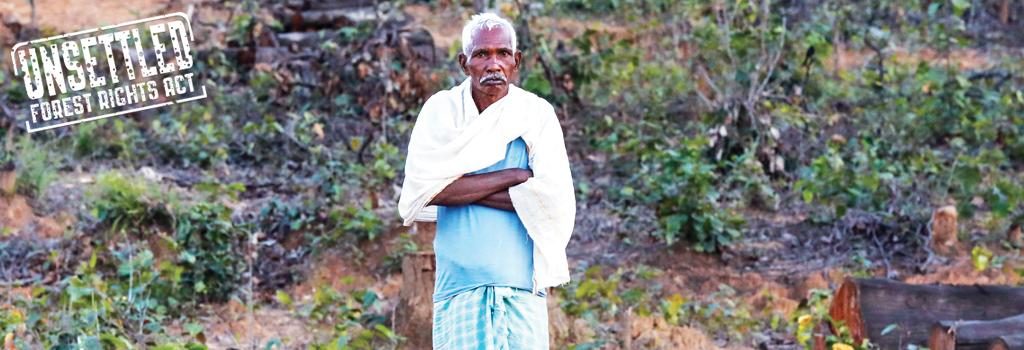The Scheduled Tribes and Other Traditional Forest Dwellers Act or simply the Forest Rights Act (FRA) was considered a landmark piece of legislation passed in India in 2006. It meant to correct the historical injustice against forest dwellers done since the colonial era and in independent India. Sadly, 13 year on, the FRA has been reduced to a beaurocratic mechanism of filling forms and receiving titles as against what it intended to do – to protect pre-existing rights of the marginalised and balance the rights to environment with their right to life and livelihood. And to make matters worse, a recent research in the Sunderbans points out, FRA implementation is being hindered not just by beaurocracy but also by a certain fraction of locals for their own personal gains and political interests.
Also Read: India has the Highest Forest Ranger Mortality in the World
The Forest Rights Act allows traditional forest dwelling communities the right to live in the forests, use them for agriculture and to collect non-timber forest products like honey. The tribal communities also have the right to take decisions on the forest and biodiversity conservation. The Act also empowers Gram Sabhas, responsible for the supervision of forest management, to accept, verify and decide community and individual claims on forest lands by the tribals.
Local Hindrance
Ironically, a majority of the locals are causing the most hindrance in the implementation of the Act in the Sunderbans, found a 2018 study by sociologists Sarmistha Pattanaik and Amrita Sen . “The Act’s implementation is being hindered not only by the bureaucracy but by a section of local communities themselves. It is only when people demand the Act’s execution then the question of action and mobilisation by NGOs and activists arise,” said Sen, a postdoctoral researcher at Azim Premji University, Bengaluru.
Local elites hold a position of power in the community and often act as a liaison between the villagers and the power players and politicians. In places like Sundarbans which is a high-demand tourist attraction and home to tigers, eco-hotels is a booming business which regional party offices set up. If FRA is implemented, the owners of the eco-hotels and fisheries, which are set up illegally on forest lands, would have to seek permission from the locals for running their ventures.

As per Mongabay India, the study found that the decisions regarding matters related to forests rested with the state in the Sunderbans, in violation of FRA (which prescribes that such decisions should be made by gram sabhas), and the bureaucrats used various tactics to prevent the tribal communities from accessing these forests. The needy and poor are unable to recognise their entitlements and are not active in local politics—a situation which the local elites have taken advantage of.
Also Read: Tribal Women Save Forests Being Cut in the Name of Eco-Tourism
But is it only the Sundarbans where the FRA implementation is being delayed or hindered? As per a UN status report of 2017, the implementation of the Act in general and especially in Protected Areas (PAs) has been negligible and tardy – not just in the Sundarbans but across India.
Forest dwellers or encroacher
The forests and forests lands have been the only source of subsistence for almost a quarter of India’s population for many generations. But in the colonial era when the British government began to make forest laws (more to take advantage of the resources themselves), they began pushing the tribal out of their forest homes. The practice continued in an independent India, this time stemming out of a view that forest dwellers and forest conservation could not work in tandem. Unfortunately, this mindset failed to take advantage of the inherent conservation knowledge that these communities carried with themselves, instead bracketing them as ‘encroacher’ who were abusing natural resources.
In 2006, with the Forest Rights Act, it was believed that finally these tribal communities were getting their due recognition by honouring their dependency to the forest lands and allowing them to conserve it in the best possible manner. It was also believed that the FRA would sieve out the real encroachers – the timber seekers, commercial agriculturists, mining giants, commercial fishing enterprises and even the conservation organisations that were engaged in increasing tourist footfalls in protected forests in the very name of conservation. Because the FRA makes the Gram Sabha and the locals the decision makers in matters related to the forest and NOT the state, it gave the local community legal power to stop the aforementioned encroachers from destroying and abusing the natural resources.

Tragically, the FRA’s bureaucratic interpretation, gross misuse and misappropriation of the law itself has turned it into a means of getting titles on forest land for the elite few, and a hurdle race of form filling, file forwards and lengthy documentation procedure for others.
Also Read: Villagers in Madhya Pradesh Save forests from Lime Kiln Owner
Here is one example. 70 year old Adil Sai Armo pictured above, according to Down To Earth, lost his forest land in Ghabarwa village in Chhatisgarh’s Sarguja district to mining. His claim of ownership of a traditional land was rejected because he did not have the documentation or the knowhow of fighting mining giants and ‘officially’ claim the rights for a forest land that was the only home he knew since birth.
Eviction Notice
In February this year, the Supreme Court of India, hearing a petition filed by wildlife conservationists and former forest department officials in 2008, directed state governments to evict “encroachers” or the “illegal” forest dwellers like Adil Sai Armo. Close to 12 lakh forest dwellers faced imminent eviction from areas that were their only home. The apex court believed quite rightly, that 13 years was a long time for states to complete the process of separating the genuine from the encroachers, little realising that it had opened a sore wound. The court was very specific in its order to,
- Evict the claimants whose claim had been rejected
- Report on the status of those whose claims were being re-verified within 4 months by each of the 17 states
- Let Forest Survey of India make a satellite survey and map encroached positions.
Forest dwellers across the country protested and the order was stayed, but what it has brought to the forefront again is the incomplete and quite possibly erroneous data on the claim settlement. While the court has now asked all states to review, and re-verify all the pending cases and submit a report by July, the skewed way in which the law is being interpreted and implemented may ultimately jeopardise everything.
The UN report of 2017 claims,
- The process of claiming and recognising rights is routinely obstructed by the authorities. Even where rights have been recognised, exercising those rights is a struggle for the concerned communities.
- Relocation continues from Tiger reserves and other protected areas in violation of sections under the FRA and WLPA. Relocations are more often through direct and indirect coercion and seeking signatures as individuals instead of a gram sabha consultation and without free prior informed consent. Processes of FRA are being completed (if at all) in tardy manner to be able to facilitate relocation.
- There are almost no efforts towards using the provisions of FRA and WLPA to develop co-existence and community conservation plans, which was one of the significant potentials of implementing FRA in PAs.
- Particularly, rights are being denied for vulnerable groups such as nomadic pastoralist communities. It is evident from the data thus generated that conservation practice in India continues to be top down, using guns and guards policy, forcing relocation, through violations of human rights, and through criminalisation and atrocities on those who resist such efforts.
A documentary made few years ago also pointed how conservation organisations like WWF were involved in relocation of tribals from forests in the name of conservation while encouraging tourists to come in thousands.
“They say tribals are a problem for a tiger habitat, but urban population and so called eco-tourists that they are bringing are not?” ask Ullash Kumar, environmentalist and wildlife photographer Vasudha Chakravarthi. You can watch it here.
While the nonprofit has denied these allegations since then, it again brings forth a problematic situation where the policies, policymakers, benefactors and conservation organisations that are supposed to provide community conservation plans too, don’t seem to be on the same page.
Also Read: The Women Who Live Alongside Rhinos in India

Road Ahead
Sunita Narain, Director General of CSE and editor of Down To Earth wrote recently “Sustainable development, pollution, employment generation and agrarian crisis did not play major roles in deciding the outcome of the 2019 General Elections. That though doesn’t mean that these issues are peripheral and the new government must address them effectively.”
The past five years development has been an agenda but as far as the FRA is concerned, the development of the community largely dependent on the forests for their life and livelihood has been an ignored cause. The overwhelming vote of confidence the government has received only makes it clear that people believe in their power to make changes. And that means people from all sectors. The tribal community can be the flag bearers of a sustainable future if only they are given a transparent system to own what their forefathers thought was their own and the true encroachers pushed out of the forests before they turn them into money-minting mines, resorts and paddy fields devoid of biodiversity in the long run.
If you liked what you read and wish that we continue to bring stories of lesser known species into the mainstream, do support our work by clicking here.
Featured image via HT











One thought on “What is Going Wrong With the Forest Rights Act?”